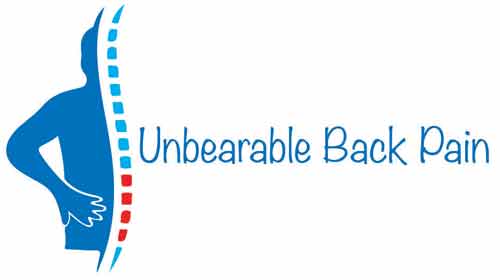
Uric acid is a chemical created when your body breaks down substances called purines. Purines are found in many foods, and they’re also naturally occurring in your cells. When things are working well, your body dissolves the uric acid in your blood, and it’s eliminated through your kidneys when you urinate.
For most people, this balance between uric acid production and elimination maintains healthy levels in the blood. But sometimes, this process is disrupted. When your body produces too much uric acid or your kidneys excrete too little, you can end up with excess uric acid—a condition known as hyperuricemia.
While higher-than-normal uric acid levels don’t always cause symptoms, they can lead to various health issues. Long-standing hyperuricemia may result in problems such as kidney stones or gout, a type of arthritis that typically affects the joints in your feet and toes. So, does it affect your back?

Can High Uric Acid Cause Back Pain? Exploring the Connection
As stated, hyperuricemia, or high uric acid in the blood, is typically associated with gout, a form of inflammatory arthritis. But it could also be an elusive condition that triggers back pain.
The science isn’t clear-cut, but some schools of thought suggest a potential link. Uric acid crystals, which form when the blood has too much uric acid, can deposit in joints – a hallmark of gout. While gout commonly affects the big toe, it can also target other joints, including those in the spine. This could lead to back pain.
Research has delved into the relationship between serum uric acid levels ( a measurement that determines how much uric acid is in your blood) and conditions affecting the spine. For instance, a study might find that individuals with higher uric acid have a greater incidence of spinal disc herniation – though such findings require further investigation.
As well as the direct deposition of crystals, high uric acid might indirectly contribute to back pain through kidney stone formation. Sharp crystal aggregations can obstruct urinary pathways, causing pain that radiates to the back and sides.
Other conditions that can appear with high uric acids are metabolic syndrome and diabetes. Metabolic syndrome is the name for a group of health problems that can lead to type 2 diabetes. Both of these conditions are present in many people who suffer from chronic back pain. High uric acid could potentially exacerbate these conditions, creating a complicated web of cause and effect.
You may be thinking that high uric acid has its hand in many health conditions, but it’s not the only culprit behind back pain. There are many factors, from mechanical issues to soft tissue inflammation, that play leading roles. High uric acid may just be one piece of a larger puzzle.
It is therefore essential to seek professional medical advice if you are concerned. A proper diagnosis relies on more than just conjecture. It requires a careful examination of symptoms and medical history, aided by diagnostic tests.

Identifying Symptoms and Seeking Diagnosis
When it comes to health, you should never ignore warning symptoms. If you’re experiencing back pain, it’s important to consider all possible causes, including high uric acid levels.
Common signs that suggest elevated uric acid include joint pain, swelling, redness, or warmth in the joints – often starting with the big toe. However, these symptoms can extend beyond the joints and possibly affect the back, creating discomfort.
Self-diagnosis is risky. If you suspect high uric acid is the problem behind your back pain, seek professional medical advice. A doctor will likely recommend blood tests to measure your uric acid levels and other assessments to confirm the diagnosis.
Understanding your symptoms is crucial, but interpreting them correctly is key to effective treatment. If you’re dealing with persistent back pain, and especially if you’ve got a family history or lifestyle that predisposes you to high uric acid, it’s time to consider that as a contributing factor.

Managing High Uric Acid and Alleviating Back Pain
If tests confirm high uric acid is the problem behind your back pain, it’s important to know that management and relief are within reach. With the right approach, both your uric acid levels and back discomfort can be significantly improved.
Lifestyle modifications are often the first line of defense. This includes staying well hydrated by drinking plenty of water, which helps your kidneys filter out uric acid more effectively. Engaging in regular exercise and maintaining a healthy weight are also critical steps, as excess weight can increase the strain on your back and joints, potentially exacerbating pain.
Some foods to avoid include:
- Mussels
- Seafood
- Sugary drinks
- Red meat
- Liver
- Kidney
- Sardines
- Scallops
This is by no means a comprehensive list, but from knowing people who suffer from high uric acid levels, this is a good indicator and a good place to start.
Your doctor may prescribe medications to help reduce uric acid levels or treat the underlying causes of back pain. This could include drugs that improve uric acid removal or prevent its buildup. Adhering to instructions is essential for these treatments to be effective.
Home remedies like applying heating patches or a cold pack to the affected area may provide temporary relief. Additionally, certain exercises, when done correctly, can strengthen your back and improve flexibility, thus reducing pain. A physical therapist can guide you in creating a safe and effective exercise routine.
Diet plays a crucial role in controlling uric acid levels. Refer to the list above for foods to avoid if possible, but incorporating fruits and vegetables, whole grains, and low-fat dairy products can contribute to overall health and help in managing uric acid.
So, do not panic if you think high uric acid could be the cause of your back pain. With a sensible approach, it can be managed effectively, and back pain relieved. Through a combination of medical interventions, lifestyle adjustments, and self-care measures, you can regain control. Always consult with healthcare professionals who can provide you with personalized advice and treatment options tailored to your specific needs.
Final Thoughts
“Here’s a little transparency: Our website contains affiliate links. This means we may receive a small commission if you click and purchase. Don’t worry, there’s no extra cost to you. It’s a simple way you can support our mission to bring you quality back relief content.”


